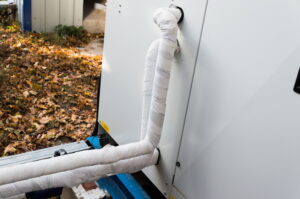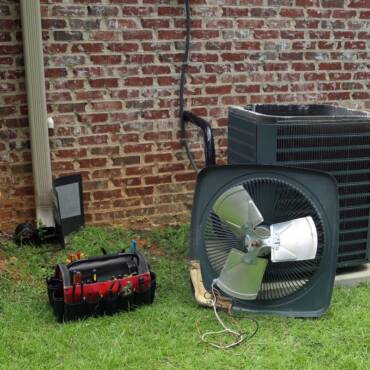An air conditioning system can develop several issues over its lifespan. One of the most frequent problems that different types of air conditioning systems develop is a refrigerant leak. A leak in your air conditioner’s refrigerant line leads to the system losing refrigerant. Many people do not realize that a refrigerant leak can lead to many problems for an air conditioner.
You’re probably aware that refrigerant is an important part of how your air conditioner keeps your home cool and comfortable during the searing heat in Midwest City. If you don’t know more, it is about time that you learn some of the most important things about it.
This post will share some important information about the refrigerant because understanding its role can help you realize the importance of calling a professional for AC repair in Midwest City if your air conditioner develops a refrigerant leak.
Is Refrigerant a Fuel?
Refrigerant plays an important part in ensuring that your air conditioner can do a good job. However, there is a common misconception people have about refrigerants. It is not a type of fuel for your air conditioner. The unit does not use up refrigerant to cool the air. The unit relies on electricity to run, and the refrigerant levels should stay the same provided there is no leak.
What Happens When Refrigerant Leaks?
Because the refrigerant is flowing at very high pressure throughout the system, it can lead to leaks. Refrigerant leaks can happen to any air conditioner. Regular use and passing time take a toll on an AC. Sometimes, the wear and tear can lead to the refrigerant line breaking and developing a leak.
When your air conditioner develops a leak, you might notice one or more of the following problems:
- Icy evaporator coil or water leaks: Low refrigerant levels can lead to ice building up on the evaporator coil. The melting ice can overflow the drip tray and leak water inside the house.
- Reduced cooling: When there is not enough refrigerant flowing through the system, your air conditioner will become less effective at cooling the indoor air.
- Inefficient system: Low refrigerant levels will force an AC to work harder to cool down your home, resulting in greater energy use.
How to Tell If You Have a Refrigerant Leak
If your air conditioner develops a refrigerant leak, you should address the problem immediately. Here are some other signs you should look for to tell whether you have a refrigerant leak:
- Your air conditioner is short-cycling: The system turns on for a few minutes, powers down before completing a cooling cycle, and repeats the cycle.
- Your energy bills are rising: An AC that has to work harder to cool your home will use more energy and lead to higher utility bills.
- Your AC is making strange noises: Refrigerant leaks could cause bubbling or hissing noises when using your air conditioner.
Is Your Air Conditioner’s Refrigerant Leaking?
Refrigerant leaks can be problematic and expensive. We highly recommend turning off your air conditioner if you suspect a refrigerant leak and calling a professional for repairs immediately. Failing to schedule AC repair services to resolve the leak can significantly damage your air conditioner, requiring extensive and costly repairs.
If you’re looking for professionals experienced in dealing with all kinds of air conditioning problems, we are here to help.
At Comfort Incorporated, we keep your family safe, healthy and comfortable—call today, service today!
Whether you require installation, repair, or maintenance, our technicians will assist you with top-quality service at any time of the day or night. Take comfort in knowing your indoor air quality is the best it can be with MOE heating & cooling services Ontario's solution for heating, air conditioning, and ventilation that’s cooler than the rest.
Contact us to schedule a visit. Our qualified team of technicians, are always ready to help you and guide you for heating and cooling issues. Weather you want to replace an old furnace or install a brand new air conditioner, we are here to help you. Our main office is at Kitchener but we can service most of Ontario's cities
Source link




Add Comment